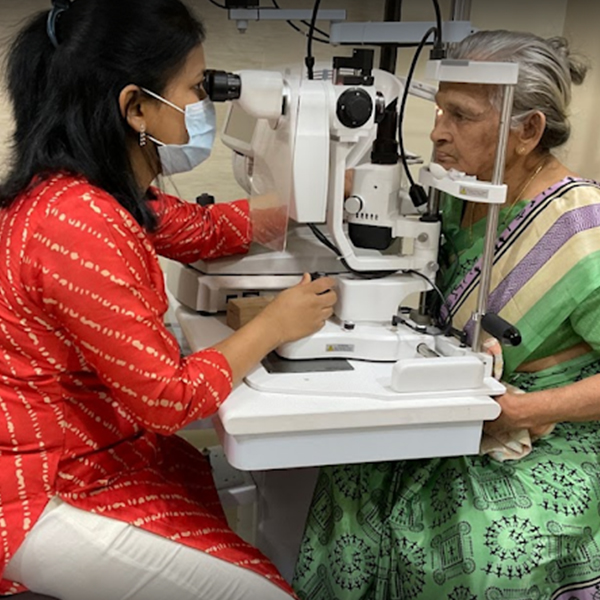Cornea and Lasik Eye Surgeon Specialist & Opthalmologist in Dombivali

Digitalized Vision Testing
Digitalized vision testing is a type of eye examination that uses digital technology to assess a person's visual acuity and other aspects of their vision. Digitalized vision testing typically involves the use of a computerized system that presents the patient with a series of visual stimuli, such as letters, numbers, or images, and measures their ability to see and interpret these stimuli.
Digitalized vision testing has several advantages over traditional vision testing methods. It is often more accurate and precise, as it can control for variables such as lighting and distance. It can also be more convenient and efficient, as the testing can be done quickly and can also be customized.
Digitalized vision testing is typically used as part of a comprehensive eye examination to assess a person's visual acuity and determine their need for glasses or contact lenses. It may also be used to monitor changes in vision over time, or to diagnose and evaluate certain eye conditions, such as glaucoma or macular degeneration.
Digitalized vision testing offers several benefits over traditional vision testing methods, including:
- Improved accuracy and precision: Digitalized vision testing uses computerized technology to control for variables such as lighting and distance, which can help to improve the accuracy and precision of the results.
- Convenience and efficiency: Digitalized vision testing can be performed quickly and does not require a doctor to be present, which can make it more convenient and efficient for patients.
- Customized testing: Digitalized vision testing systems often allow for customizable testing protocols, which can be tailored to the individual patient's needs and preferences.
- Comprehensive testing: Digitalized vision testing systems can often assess a wide range of visual functions, including visual acuity, contrast sensitivity, color vision, and visual field.
Overall, digitalized vision testing can provide valuable information about a person's vision and can help to identify vision problems and guide treatment decisions. It is an important part of a comprehensive eye examination and can help to maintain healthy vision.
Copyright © All Rights Reserved, By Dr Vidya Bawkar
 WhatsApp
WhatsApp